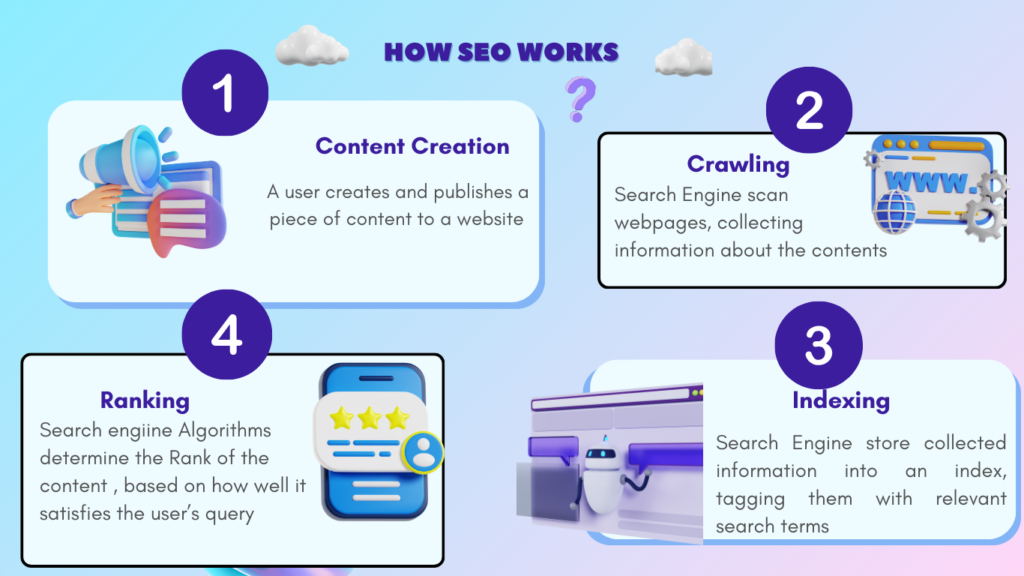Best way to Rank your website in 2 mins
Rank your website: In today’s digital age, having a strong online presence is crucial for any business or individual. One of the most effective ways to increase visibility and drive traffic to your website is by ranking your webpage in search engine results. Google, being the most popular search engine, is the go-to platform for users worldwide. In this blog post, we will provide you with step-by-step procedure to rank an article from your website the Google search engine.
Table of Contents
Create an ARTICLE
The first step in ranking your website is to create high-quality and relevant content. Your article should resonate with your target audience and provide valuable information. It is important to consider the keywords and topics that users are searching for. By conducting keyword research, you can optimize your article to align with popular search queries.
Publish on your website
Once you have crafted your article, it’s time to publish it on your website. Ensure that your webpage is user-friendly, visually appealing, and easy to navigate. Make use of headings, subheadings, and bullet points to enhance readability. Remember to include relevant images, videos, or infographics to provide a comprehensive experience for your readers.
Verify SEO score using RANKMATH
When it comes to ranking your webpage, Search Engine Optimization (SEO) plays a pivotal role. It helps search engines understand the relevance and quality of your content. One tool that can assist you in analyzing your webpage’s SEO score is RANKMATH. This user-friendly plugin evaluates various aspects including keyword density, readability, meta tags, and backlinks to provide you with an SEO score.
Make changes to improve SEO Score
Based on the analysis provided by RANKMATH, make the necessary changes to improve your webpage’s SEO score. Pay attention to keyword optimization, ensuring your target keywords are strategically placed throughout the article. Optimize your meta tags, headings, and alt text for images. Additionally, focus on enhancing the readability and overall user experience of your webpage.
Publish the URL to Google search engine
Once you have made the necessary improvements to your webpage, it’s time to submit the URL to the Google search engine. Google’s Search Console provides a platform where you can submit your URLs for indexing. This step ensures that Google’s algorithms recognize and include your webpage in search results.
Your page will be ranked after indexing in Google
After submitting your URL to Google search engine and successfully indexing your webpage, your page will have the opportunity to be ranked in search results. It is important to note that ranking takes time and is dependent on various factors such as content relevance, backlinks, and user engagement. Continuously monitor your webpage’s performance in search results and make necessary adjustments to further improve its ranking.
By following these steps, you can increase the visibility and reach of your webpage on Google’s search engine. Remember that ranking is an ongoing process and requires continuous optimization and refinement. With dedication and consistent effort, your webpage can climb the ranks and attract the attention it deserves.
FAQ
1. What is SEO, and why is it important for website ranking on Google?
Search Engine Optimization (SEO) is the practice of optimizing your website to improve its visibility on search engines like Google. It is important because higher visibility leads to more organic (non-paid) traffic, which can result in better business outcomes.
2. How does Google determine the ranking of a website?
Google uses complex algorithms to assess various factors like relevance, quality of content, user experience, page load speed, mobile-friendliness, and backlinks to determine the ranking of a website.
3. What is on-page SEO, and how can it impact Google rankings?
On-page SEO involves optimizing elements on your website such as content, meta tags, headings, and images. Proper on-page optimization helps search engines understand the relevance and quality of your content, positively impacting your Google rankings.
4. How do backlinks influence a website’s ranking on Google?
Backlinks, or links from other websites to yours, are a significant ranking factor. Quality backlinks from reputable sources indicate to Google that your content is valuable and relevant, contributing to higher rankings.
5. Is content quality important for Google ranking?
Yes, content quality is crucial for Google ranking. High-quality, relevant, and engaging content tends to perform better in search results. Google aims to provide users with the most valuable information, so quality content is rewarded.
6. How does mobile-friendliness affect Google rankings?
Google considers mobile-friendliness as a ranking factor since a large portion of internet users accesses websites through mobile devices. A mobile-friendly website ensures a positive user experience and can contribute to higher rankings on Google.
7. What is the role of website speed in Google ranking?
Page load speed is a crucial factor for Google rankings. Faster-loading pages provide a better user experience, and Google tends to prioritize websites that deliver content quickly.
8. Are there any penalties for violating Google’s guidelines?
Yes, Google can impose penalties for violating its guidelines. This may result in a drop in rankings or removal from search results altogether. Common violations include using deceptive practices, engaging in keyword stuffing, or having poor-quality content.
9. How often should I update my website content for better Google rankings?
Regularly updating your website with fresh and relevant content can positively impact your Google rankings. However, the frequency of updates depends on your industry and the nature of your content.
10. Can social media activity influence Google rankings?
While social media signals themselves don’t directly impact Google rankings, active social media profiles and engagement can indirectly contribute to your website’s visibility. Social sharing may lead to increased visibility and potentially more backlinks.
Remember, SEO is an ongoing process, and staying informed about Google’s algorithms and guidelines is essential for maintaining and improving your website’s ranking over time. Please watch my channel for More updates

